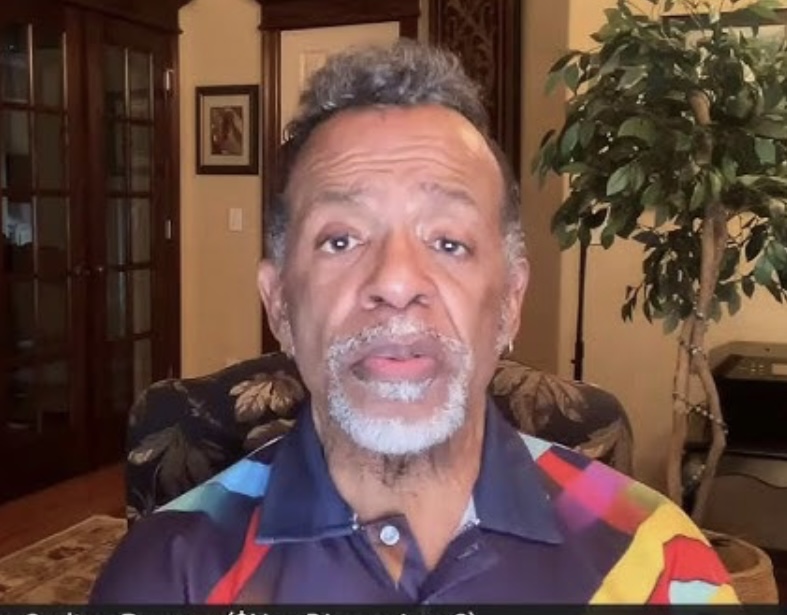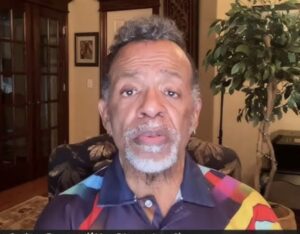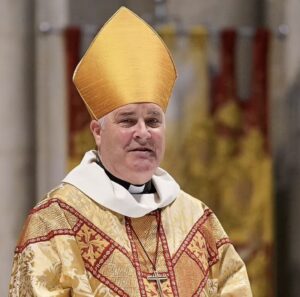The enigmatic chronicle of Carlton Pearson: A Minister’s Odyssey from Elevation to Desolation
Carlton Pearson, a renowned American minister, experienced a remarkable journey that encompassed both triumph and tribulation. Born into a deeply religious family, Pearson’s faith was ingrained in him from an early age. He quickly rose to prominence within the evangelical community, captivating audiences with his charismatic preaching style and unwavering devotion to spreading the gospel. Born on March 19, 1953, in San Diego, California, Pearson initially gained recognition as a protégé of renowned televangelist Oral Roberts.

Bishop Carlton Pearson the founder of a former megachurch in Oklahoma has died
Pearson’s ministry reached its zenith as he became the pastor of Higher Dimensions Church, a megachurch in Tulsa, Oklahoma. His sermons attracted thousands of followers, and his television program garnered a substantial viewership. Pearson’s message of love, inclusivity, and the belief in a loving God resonated with many, earning him a reputation as a progressive and forward-thinking religious leader.
However, it was during this period that Pearson’s theological beliefs began to evolve, leading to a dramatic shift that would ultimately result in his fall from grace. Influenced by his encounters with people of different faiths and his own introspection, Pearson started questioning the traditional doctrine of eternal damnation. He began to embrace the concept of universal reconciliation, the belief that all souls would eventually be reconciled with God, regardless of their religious affiliation.
This newfound perspective on salvation, however, was met with fierce opposition from his fellow evangelicals. Pearson’s departure from the traditional teachings of hell and damnation was seen as heretical, and he faced severe backlash from his own congregation and the wider evangelical community. Many of his supporters turned their backs on him, and his once-thriving ministry began to crumble.
As the controversy surrounding his beliefs intensified, Pearson’s reputation suffered a significant blow. He was labeled a false prophet, a traitor to the faith, and his ministry was deemed a dangerous departure from biblical teachings. The financial strain resulting from the loss of support and followers took a toll on Pearson, forcing him to downsize his church and eventually sell the property.
Despite the immense challenges he faced, Pearson remained steadfast in his convictions. He continued to advocate for his message of love and inclusivity, even as he faced isolation and rejection from the religious community he had once been a part of. Pearson’s journey became a testament to the power of personal growth and the courage to challenge deeply ingrained beliefs.
In recent years, Carlton Pearson has found solace in rebuilding his life and ministry, albeit on a smaller scale. He has become an advocate for social justice, using his platform to address issues such as racial inequality and LGBTQ+ rights. Pearson’s story serves as a reminder that even in the face of adversity, one can find redemption and purpose.
The rise and fall of Carlton Pearson may have marked the end of an era in his evangelical career, but it also paved the way for a new chapter in his life. His journey serves as a cautionary tale about the dangers of dogmatism and the importance of embracing compassion and understanding in the pursuit of spiritual truth.
Throughout his early career, Pearson adhered to the traditional teachings of evangelical Christianity, preaching about sin, salvation, and the eternal damnation of non-believers. However, his perspective took a dramatic shift in the late 1990s when he experienced a profound spiritual transformation that challenged his previous beliefs.
Pearson began questioning the concept of hell and eternal punishment, finding it difficult to reconcile with a loving and compassionate God. This internal struggle led him to embrace a controversial doctrine known as universal reconciliation or universalism. According to this belief, Pearson argued that God’s love and grace extend to all people, regardless of their faith or religious affiliation, and that ultimately, everyone will be reconciled with God.
This radical departure from mainstream evangelical theology caused an uproar within the religious community, leading many to label Pearson as a rebel preacher. His teachings were met with fierce opposition from fellow pastors, congregants, and even close friends, who accused him of heresy and straying from the true teachings of Christianity.
Despite the backlash, Pearson remained steadfast in his convictions, continuing to preach his message of inclusion and love. He founded the New Dimensions Worship Center in Tulsa, Oklahoma, where he welcomed individuals from diverse backgrounds, including those who had been marginalized by traditional religious institutions.
Pearson’s rebellious stance not only challenged the traditional doctrines of Christianity but also sparked a broader conversation about the nature of God’s love and the boundaries of religious inclusivity. His teachings resonated with many who had felt excluded or condemned by the church, offering them a message of hope and acceptance.
While Carlton Pearson’s journey as a rebel preacher has been met with both admiration and criticism, there is no denying the significant impact he has had on the religious landscape. His willingness to challenge long-held beliefs and advocate for a more inclusive understanding of God’s love has left an indelible mark on the hearts and minds of many, but will never change the way the Bible perceive faith and spirituality.







